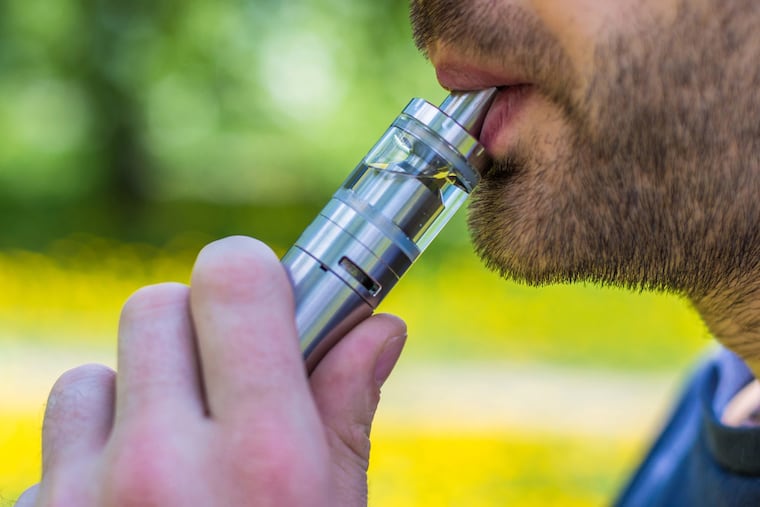Potential culprit found in vaping-related lung injuries and deaths
CDC officials found vitamin E acetate, an oil derived from the vitamin, in all 29 samples of lung fluid collected from patients who had fallen ill or died from lung injuries.

WASHINGTON — Federal health officials have identified vitamin E acetate in the lung fluids of 29 people sickened in the outbreak of dangerous vaping-related lung injuries. The discovery is a “breakthrough” that points to the oil as a likely culprit in the outbreak that has sickened more than 2,000 people and killed at least 39, a top official said Friday.
"These findings provide direct evidence of vitamin E acetate at the primary site of injury within the lungs," said Anne Schuchat, principal deputy director at the Centers for Disease Control and Prevention. The latest findings point to growing evidence of vitamin E acetate as "a very strong culprit of concern," she said.
Although the findings announced Friday do not rule out other possible compounds or ingredients that may be causing the lung injuries, Schuchat described the lab results as a "breakthrough" in the investigation. CDC tested for a wide range of substances that might be found, including plant oils and petroleum distillates, such as mineral oil.
But, she said, "No other potential toxins were detected."
CDC officials found vitamin E acetate, an oil derived from the vitamin, in all 29 samples of lung fluid collected from patients who had fallen ill or died from lung injuries. THC, the psychoactive ingredient in marijuana, was also found in 23 patients, including three who said they had not used THC products. Nicotine was detected in 16 of 26 patients.
Vitamin E acetate, an oil derived from the vitamin, has already been identified in previous testing by federal and state laboratories in vape products that contain THC. Virtually all the products were obtained on the illicit market. Vitamin E acetate has been used in recent months as a cutting agent or additive on the cannabis black market to stretch the amount of THC in vape cartridges, officials and industry experts have said.
The findings are significant because for the first time, scientists have been able to connect results from product testing with clinical specimens from patients, she said.
Vitamin E acetate is found in many foods and in cosmetic products, especially skin care products. It’s not known to cause harm when swallowed or applied to the skin, Schuchat said. But when it is heated and inhaled, it may interfere with normal lung function. Its properties could be associated with the kinds of respiratory symptoms that many patients have reported: cough, shortness of breath and chest pain, officials and experts have said.